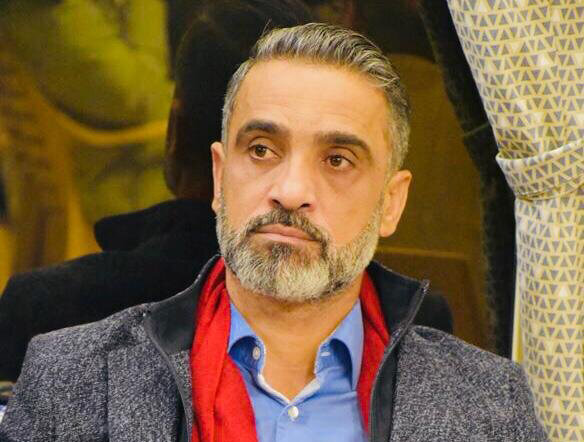Israel is orphaned and isolated today: Lebanese academic

TEHRAN - A Lebanese political researcher says today Israel is isolated as the Iran nuclear deal is in the process of being restored.
"Israel today is isolated and orphaned because it was informed that Washington is moving towards a settlement in West Asia, so it must adapt to this new reality and that the privileges that were granted to it have ended," Tariq Aboud tells the Tehran Times.
However, Aboud says, "This does not mean that Israel will stop working to sabotage Iran's peaceful nuclear activities."
Israel spares no effort to hinder the negotiations from reviving Iran's nuclear deal. It has assassinated Iranian nuclear scientists and been engaged in sabotage operations on Iran's nuclear facilities in an attempt to stop Iran's nuclear progress.
However, Iran succeeded in developing its peaceful nuclear activities despite the "maximum pressure" policy under Trump's presidency. Now Biden is aware that there is no way, but negotiations with Iran and tries to make Israel and Saudi Arabia understand that the era of threat and pressure against Iran is over.
"The Zionist regime will try to harm Tehran through unilateral acts of sabotage that are not endorsed by Washington, but its actions will not be effective. Nobody can stop Tehran from pursuing the current nuclear path," the professor at the Lebanese International University notes.
Following is the text of the interview:
Q: How do you read Bin Salman's recent statements regarding Iran? Why did bin Salman suddenly remember that Iran is a neighbor to Saudi Arabia?
A: The Saudi crown prince knows that the world has changed after Joe Biden was inaugurated as president in the White House.
Biden had hinted that the honeymoon between Saudi Arabia and the U.S. is over, so bin Salman read this message well and began to deal on the basis of it.
He realized that Biden had made a decision to return to the nuclear agreement and that he had to arrange his relationship with Tehran and approach it in a realistic and different way.
So Bin Salman's recent interview carried positive messages, indicating the desire to reach an understanding with Tehran.
Q: To what extent did the American pressure help push Saudi Arabia to change its foreign policy, especially towards Qatar and Iran?
A: The American pressure on Saudi Arabia is clear, signaling that sanctions and military threats failed to work when it comes to Iran.
The U.S. administration tries to make Saudis and Israelis understand that they should forget about military options, so Riyadh must go to talk to Iran directly.
Today Washington is reluctant for any act of aggression on Tehran, and this approach cannot be changed easily.
Q: What will be the impact of the possible revival of the 2015 nuclear deal on Tehran's relations with the Persian Gulf states?
A: The Persian Gulf Arab states are always influenced by Western powers especially American policy, and they learned today that matters are going to change and the region needs settlement over the Iran nuclear file.
Iran's relationship with Arab states should be understood in this framework, where reviving of the nuclear deal comes as a complement to this settlement process. So, the region is doomed to accept the settlement and not work on obstructing it.
Q: What role does Israel may play after a revival of the nuclear deal? Do you expect new alliances with the Arab regimes against Iran?
A: Israel today is isolated and orphaned because it was informed that Washington is going towards a settlement in West Asia, so it must adapt to this new reality and that the privileges that were granted to it have ended.
This does not mean that Israel will stop working to sabotage Iran's peaceful nuclear activities.
The Zionist regime will try to harm Tehran through unilateral acts of sabotage that are not endorsed by Washington, but its actions will not be effective. Nobody can stop Tehran from pursuing the current nuclear path.
Q: What do you think of the fate of the war on Yemen? Can America force Saudi Arabia to stop the war on Yemen?
A: The aggression on Yemen is militarily over, and it is clear that Ansarullah is the final victor of this war.
This is what is acknowledged by Washington as it is working to end this war.
But it is trying to extract some political concessions before the settlement and compensating the apparent defeat of its allies in Yemen.
However, the Yemenis are well aware of Americans' tactics. They are too smart to be drawn into the trap of negotiations designed to end the war without a full cessation of the aggression and the complete lifting of the siege on the Yemeni people.
Ansarullah will complete the last phase regarding the Ma'rib to score an indisputable victory, after which the power equations on the ground will impose the next political solution on the negotiating table, and Yemen and the region will be facing a new phase determined by the achievements on the ground in the Red Sea and Bab al-Mandab.
